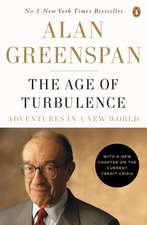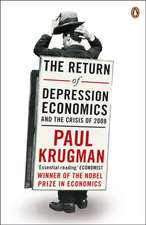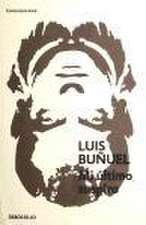Keynes: The Return of the Master
Autor Robert Skidelskyen Limba Engleză Paperback – 29 sep 2010
'One would expect brokers to be wrong. If, in addition to their other inside advantages, they were capable of good advice, clearly they would have retired long ago with a large fortune'
John Maynard Keynes
When unbridled capitalism falters, is there an alternative? The twentieth century's most influential economist tells us that there is. John Maynard Keynes argued that an unmanaged market system is inherently unstable because of irreduceable uncertainty; that fiscal and monetary ammunition is needed to counter economic shocks; and that governments need to maintain enough total spending power in the economy to minimize the chance of serious recessions happening.
'The great economist's theories have never been more relevant ... and Robert Skidelsky is the guide of choice ... A must read'
Paul Krugman,Observer
'Keynes's economic policies helped lift Britain from its 1930s slump. This accessible, timely study argues he could do the same again'
Dominic Lawson,Sunday Times
'Masterly ... conveys complex ideas with clarity and controlled anger'
Oliver Kamm,The Times
'Skidelsky knows more about Keynes than anyone alive ... he is righteous in his thunder ... provocative ... refreshing'
Dwight Gardner,The New York Times
'Thought-provoking ... the best account I have read of the development of the credit crunch'
Samuel Brittan,Financial Times
Robert Skidelskyis Emeritus Professor of Political Economy at the University of Warwick. His three volume biography of the economistJohn Maynard Keynes(1983, 1992, 2000) received numerous prizes, including the Lionel Gelber Prize for International Relations and the Council on Foreign Relations Prize for International Relations. He is also the author of theThe World After Communism(1995).
| Toate formatele și edițiile | Preț | Express |
|---|---|---|
| Paperback (3) | 52.43 lei 10-17 zile | +17.88 lei 6-12 zile |
| Oxford University Press – 7 oct 2010 | 52.43 lei 10-17 zile | +17.88 lei 6-12 zile |
| Penguin Books – 29 sep 2010 | 57.55 lei 21-33 zile | +19.43 lei 6-12 zile |
| PublicAffairs – 25 oct 2010 | 112.47 lei 3-5 săpt. |
Preț: 57.55 lei
Preț vechi: 69.25 lei
-17% Nou
Puncte Express: 86
Preț estimativ în valută:
11.01€ • 11.48$ • 9.15£
11.01€ • 11.48$ • 9.15£
Carte disponibilă
Livrare economică 28 februarie-12 martie
Livrare express 13-19 februarie pentru 29.42 lei
Preluare comenzi: 021 569.72.76
Specificații
ISBN-13: 9780141043609
ISBN-10: 0141043601
Pagini: 256
Ilustrații: Illustrations
Dimensiuni: 133 x 198 x 15 mm
Greutate: 0.19 kg
Ediția:Revised.
Editura: Penguin Books
Colecția Penguin
Locul publicării:London, United Kingdom
ISBN-10: 0141043601
Pagini: 256
Ilustrații: Illustrations
Dimensiuni: 133 x 198 x 15 mm
Greutate: 0.19 kg
Ediția:Revised.
Editura: Penguin Books
Colecția Penguin
Locul publicării:London, United Kingdom
Notă biografică
Robert
Skidelsky
is
Emeritus
Professor
of
Political
Economy
at
the
University
of
Warwick.
His
three
volume
biography
of
the
economist
John
Maynard
Keynes
(1983,
1992,
2000)
received
numerous
prizes,
including
the
Lionel
Gelber
Prize
for
International
Relations
and
the
Council
on
Foreign
Relations
Prize
for
International
Relations.
('This
three-volume
life
of
the
British
economist
should
be
given
a
Nobel
Prize
for
History
if
there
was
such
a
thing'
-
Norman
Stone.)
He
is
the
author
of
theThe
World
After
Communism(1995).
He
was
made
a
life
peer
in
1991,
and
was
elected
Fellow
of
the
British
Academy
in
1994.
Descriere
Descriere de la o altă ediție sau format:
John Maynard Keynes (1883-1946) is a central thinker of the twentieth century, not just an economic theorist and statesman, but also in economics, philosophy, politics, and culture. In this Very Short Introduction Lord Skidelsky, a renowned biographer of Keynes, explores his ethical and practical philosophy, his monetary thought, and provides an insight into his life and works. In the recent financial crisis Keynes's theories have become more timely than ever, and remain at the centre of political and economic discussion. With a look at his major works and his contribution to twentieth-century economic thought, Skidelsky considers Keynes's legacy on today's society.ABOUT THE SERIES: The Very Short Introductions series from Oxford University Press contains hundreds of titles in almost every subject area. These pocket-sized books are the perfect way to get ahead in a new subject quickly. Our expert authors combine facts, analysis, perspective, new ideas, and enthusiasm to make interesting and challenging topics highly readable.
John Maynard Keynes (1883-1946) is a central thinker of the twentieth century, not just an economic theorist and statesman, but also in economics, philosophy, politics, and culture. In this Very Short Introduction Lord Skidelsky, a renowned biographer of Keynes, explores his ethical and practical philosophy, his monetary thought, and provides an insight into his life and works. In the recent financial crisis Keynes's theories have become more timely than ever, and remain at the centre of political and economic discussion. With a look at his major works and his contribution to twentieth-century economic thought, Skidelsky considers Keynes's legacy on today's society.ABOUT THE SERIES: The Very Short Introductions series from Oxford University Press contains hundreds of titles in almost every subject area. These pocket-sized books are the perfect way to get ahead in a new subject quickly. Our expert authors combine facts, analysis, perspective, new ideas, and enthusiasm to make interesting and challenging topics highly readable.
Recenzii
Foreign Affairs
“The book offers clear and cogent critiques of modern macroeconomic thought, along with a brief but useful summary of what went wrong in 2007-9.”
“The book offers clear and cogent critiques of modern macroeconomic thought, along with a brief but useful summary of what went wrong in 2007-9.”
Financial Times, October 18, 2010
“Skidelsky’s succinct, lively, unashamed paean analyses Keynes’s core values and offers a persuasive pitch for the contemporary relevance (and necessity) of his ideas.”

















